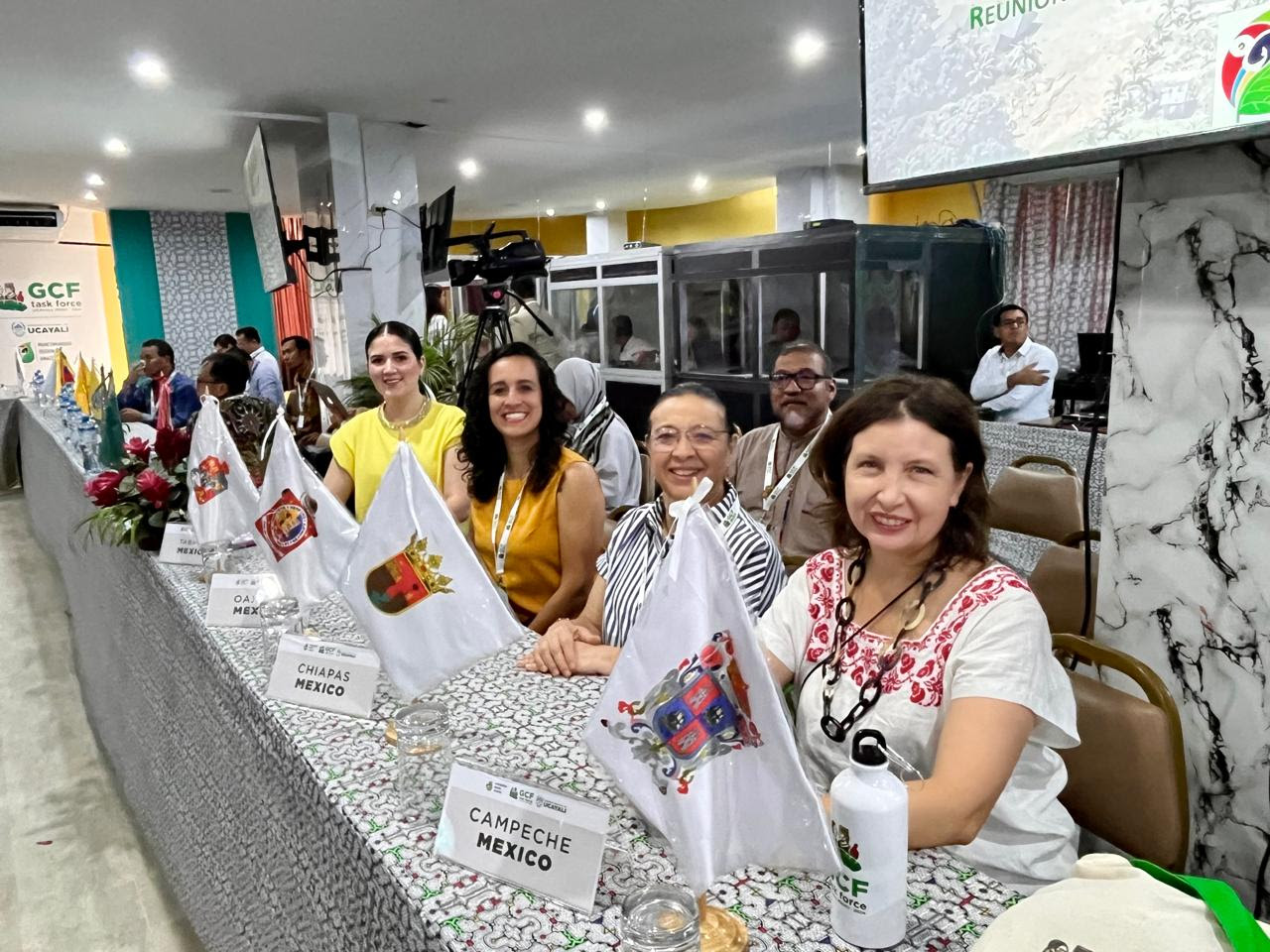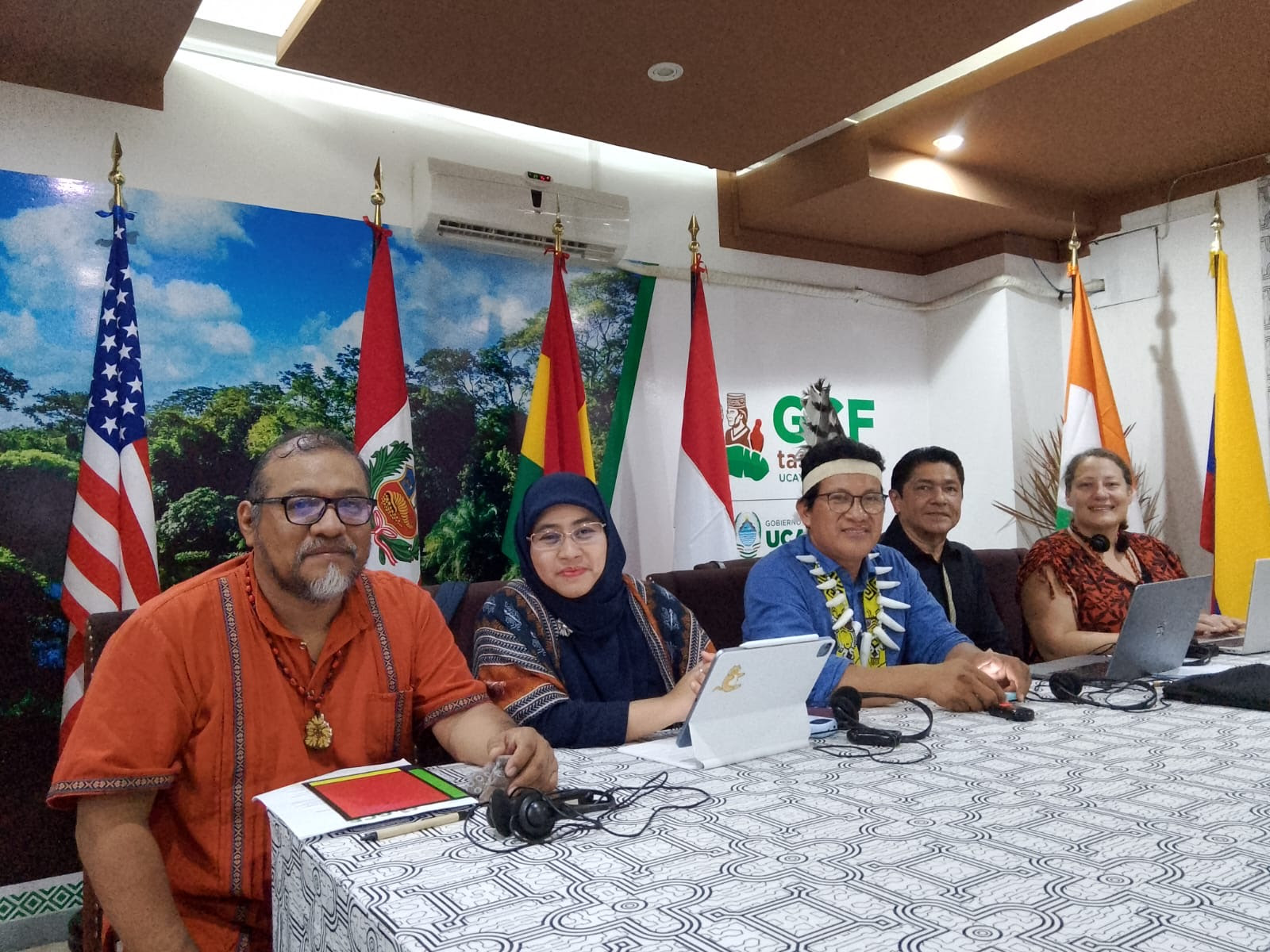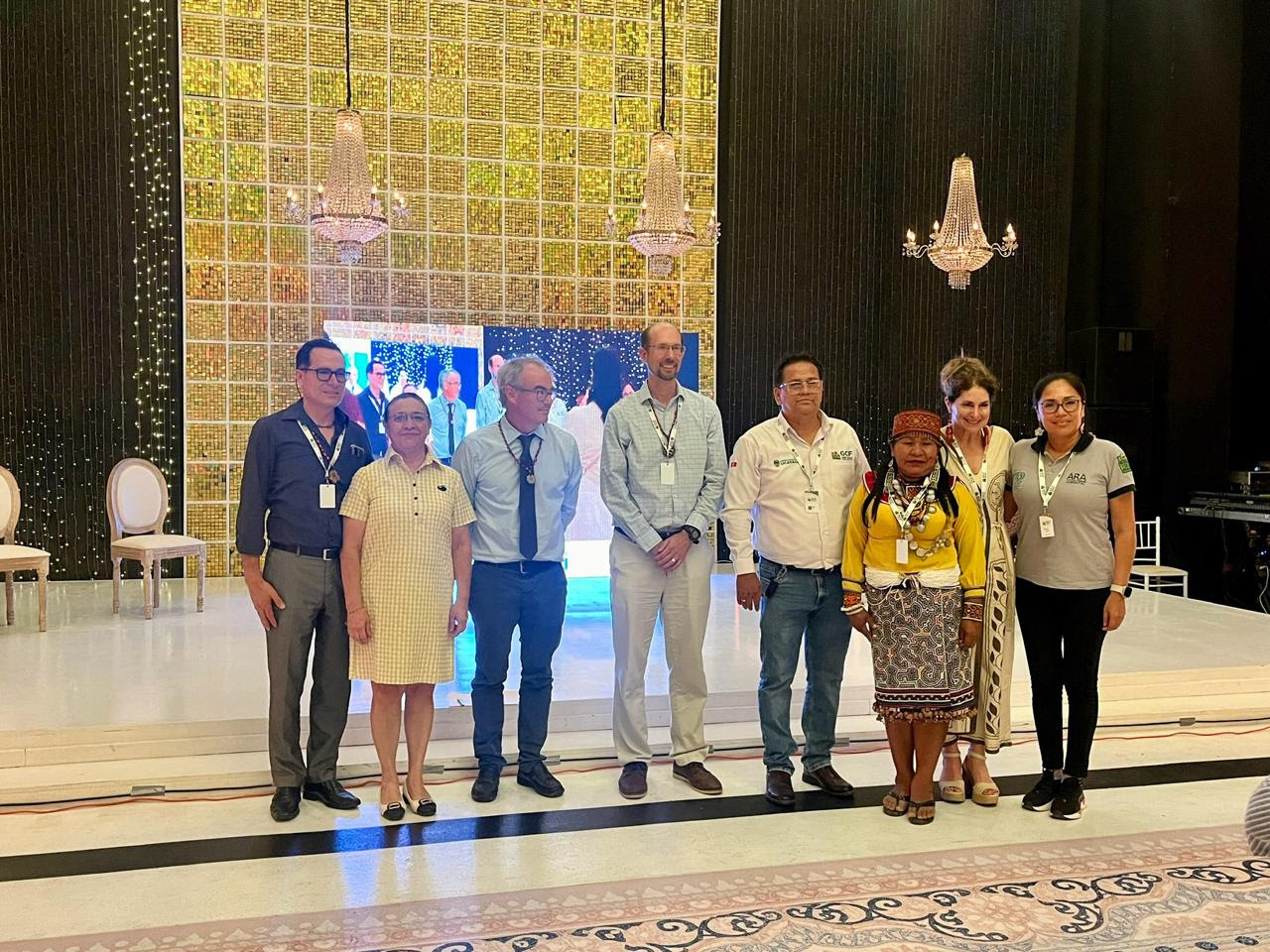In the December 2024 installment of the GCFTF Mexico newsletter, our coordination partner in Mexico – Pronatura Sur – writes:
As in every year, the Governors’ Climate and Forests Task Force (GCFTF) organizes a global meeting with the objective of engaging state government leaders and their senior staff to engage and network with other governments, the private sector, civil society, and indigenous and local communities. This year the meeting was held in the city of Pucallpa, Ucayali, Peru and sought to highlight the realities of the challenges and investment opportunities on the ground to develop a New Forest Economy that protects forests and the communities that live in them. In this edition of the newsletter, we share information on the activities that took place at this event, as well as the participation of the Mexican delegation that attended coordinated by Pronatura Sur. With this important meeting, the seven Mexican jurisdictions that are part of the GCFTF and were represented by the delegates from Oaxaca, Campeche, Chiapas and Tabasco, and reaffirmed their commitment to subnational leadership to strengthen actions to conserve the country’s forests and jungles.
The following is translated from the newsletter announcement:
GCFTF Annual Meeting. A global meeting for forests and jungles
The Governors Group for Climate and Forests (GCFTF) held its annual meeting from October 7-11, 2024 in Pucallpa, Ucayali, Peru. This event brought together a wide diversity of participants, including indigenous leaders, government representatives, international delegations and key players from the private sector. With over a thousand attendees, the meeting focused on the development of a New Forest Economy that seeks to protect tropical forests while promoting sustainable economic development and the well-being of local communities.
The GCFTF is a network that integrates 43 states and provinces from 11 countries, standing out as a space for subnational collaboration that faces global challenges such as the climate crisis, deforestation and forest degradation. On this occasion, the annual meeting was hosted by the Governor of Ucayali, Manuel Gambini Rupay, who together with the Regional Government of Ucayali and the Amazon Regional Commonwealth, led the organization of activities aimed at strengthening alliances and sharing knowledge.
The main objective of the event was to advance the construction of a New Forest Economy based on four strategic pillars: bioeconomy, natural infrastructure, forest restoration and resource intensification. These key areas were the focus of discussions and technical activities, which included field visits, high-level panels and community meetings.
During the event, the Blueprint for the New Forest Economy, a strategic document that synthesizes two years of joint work between GCFTF members and partners, was presented. This plan provides practical guidance for subnational jurisdictions to drive concrete actions in areas such as forest and carbon finance. The four pillars identified in the plan offer a comprehensive vision for addressing environmental and economic challenges, highlighting the importance of innovative financing mechanisms.

Mexico had an outstanding participation in the meeting, reaffirming its commitment to conservation and sustainable development. The seven Mexican jurisdictions that are part of the GCFTF have demonstrated strong leadership in the protection of tropical forests and the implementation of inclusive environmental policies and this was reflected in the participation of the delegates from Oaxaca, Chiapas, Campeche and the representative from Tabasco, who made significant contributions to the discussions and activities carried out during the event.
Of particular note was the participation of the state of Oaxaca in the Global Committee of Indigenous Peoples and Local Communities, represented by Manelik Olivera, Head of the Department of Regulation for Sustainable Development of the state’s Secretariat of Environment, Biodiversity, Energy and Sustainability. This committee seeks to foster collaboration between subnational governments and indigenous communities, promoting respect for territorial rights and community governance. During his speech, Olivera highlighted Oaxaca’s legacy of community-based natural resource management, highlighting the contributions of indigenous peoples in the design and implementation of sustainable projects. Olivera described this space as an essential platform for sharing experiences and learning among local communities from different countries. “Representing Oaxaca in this committee has been a great opportunity to make known the struggles and achievements of our indigenous peoples, while learning from the successful experiences of other regions. This exchange will allow us to strengthen local resource management strategies and move towards a more equitable and sustainable development model,” he said.

The meeting program included a variety of activities designed to promote knowledge sharing and collaboration. From technical visits to flagship projects in Ucayali to panel discussions with government leaders to discuss best practices in forest management. Among the topics discussed were the implementation of advanced forest monitoring technologies, such as those offered by CTrees and the World Wildlife Fund’s (WWF) Forest Foresight program. These tools enable more accurate tracking of deforestation and ecosystem changes, providing critical data for decision-making.
In addition, public sessions were held with the participation of governors and members of the Global Indigenous Peoples Committee. These meetings included high-level announcements of new partnerships and projects, as well as a closing ceremony celebrating the week’s achievements. An emotional moment of the event was the presentation of the “High Leadership Award,” which recognized María del Rosario Bonifaz, former Secretary of the Environment of Chiapas, for her work in protecting forests and promoting sustainability in the state. During her speech, Bonifaz expressed her gratitude to the Government of Norway, underscoring the importance of global collaboration to address environmental challenges.
“I want to thank the Government of Norway for its continued support of the Mexican states’ efforts to protect our forests. This support is critical to achieving extraordinary goals that would otherwise be unattainable with available local resources,” Bonifaz said. Her speech also included an inspiring reflection on the role of environmental work: “The most valuable work is in ‘earning the earth,’ in caring for and protecting our environment for future generations. In that task, having the support of GCFTF has been a great asset” she concluded.
The event also marked the closing of a work cycle for some members of the Mexican delegation, who are ending their political commitments acquired with the public positions they held during the 2018-2014 state administrations. From the GCFTF Mexico Coordination, we would like to extend our deepest gratitude to them for having played a key role in this subnational collaboration network.
María del Rosario Bonifaz Alfonzo, Secretary of Environment and Natural History 2018-2024. GCF Mexico Delegate for the state of Chiapas.
Jorge Israel García Ochoa, Secretary of Environment and Territorial Development 2022-2024. GCF Mexico Delegate of the State of Jalisco
Gary Arjona Rodríguez, Undersecretary of Climate Change 2018-2024. GCF Mexico Delegate for the State of Tabasco
Diana Pérez Jaumá, Secretary of Sustainable Development 2023-204. GCF Mexico Delegate from the State of Yucatan
Thank you for your commitment and contributions to strengthening subnational environmental actions!
At the conclusion of the meeting, the GCFTF reaffirmed its mission to strengthen collaboration among member states and partners, recognizing the need for urgent action in the face of the climate crisis. The agreements reached and commitments made during this event represent a significant step towards conserving forests and building a more resilient future for the communities that depend on them.
Learn more about the outcomes of the Annual Meeting in the event recap posted on the GCFTF website. Visit the newsletters section of the Pronatura Sur website to learn more about the GCFTF Mexico.

